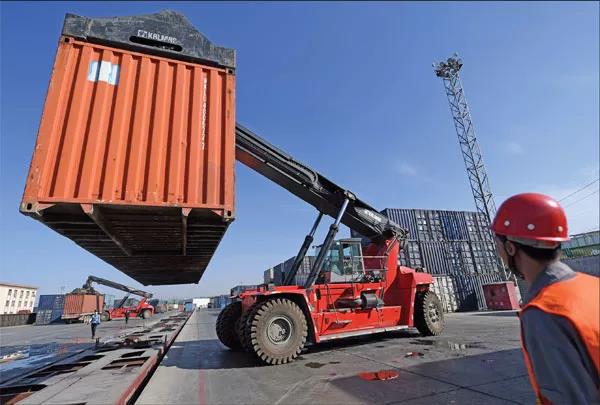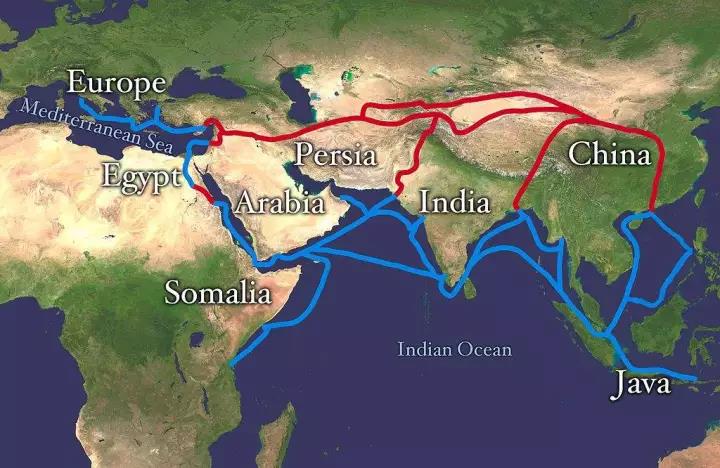
By Andrew Moody | China Daily Europe | Updated: 2017-10-13
On the eve of the 19th National Congress in Beijing, which will set the tone for the country’s direction over the next five years, there is unprecedented interest around the world
Beijing is set to play host to the biggest political meeting in China for five years, which will set the direction for the world’s second-largest economy into the 2020s.
The 19th National Congress of the Communist Party of China, which opens on Oct 18 in the Great Hall of the People with 2,287 delegates in attendance, will not only elect new Party leaders but will outline the strategy for the next five years.
This period is set to see China transition into a “moderately prosperous society” (and therefore avoiding the so-called middle-income trap that has befallen many developing countries) by the 100th anniversary of the founding of the Communist Party of China in 1921.
The 19th CPC National Congress is also likely to attract more global attention than any of the previous congresses, since what happens in China because of the size of its economy and influence increasingly has global repercussions.
This is particularly the case since the launch of China’s Belt and Road Initiative, one of the flagship policies of the past five years, which aims to build infrastructure and many other connections across the world.
President Xi Jinping, who became general secretary of the Central Committee of the CPC at the 18th CPC National Congress in November 2012, has also placed China at center stage with one of the most proactive foreign policies of any current global leader.
With his speech at the World Economic Forum in Davos in January, he is now seen as a true champion of globalization in a world where the specter of protectionism looms large.
Martin Jacques, author of When China Rules the World and visiting professor at the China Institute of Fudan University in Shanghai, says China is now seen differently from how it was perceived at previous congresses.
“China tended to be seen as just an economic story. It is now not just an economic power but a political, cultural and military and intellectual power also. You can see a quite dramatic change that has taken place,” he says.
“The country is fulfilling Xi Jinping’s concept of the Chinese Dream and becoming a rejuvenated and comprehensive power.”
Hugh White, professor of strategic studies at Australian National University and a former adviser to former Australian prime minister Bob Hawke, says China has actually begun to reshape the global order over the past five years.
“When people look back over this period between the 18th and the 19th CPC national congresses the main thing they will see is the way China has started to redefine its place in the world, in particular its place in Asia, both strategically and economically,” he says.
“It has been an extremely active period in China’s foreign policy and what we are seeing is the dividends from 35 to 40 years of remarkable economic growth.”
Frank Pieke, professor of modern Chinese studies at Leiden University in the Netherlands, also believes China’s position on the world stage has been transformed.
“The most important success of the Xi Jinping era is the enhanced international profile of China – the fact that China has become more than the superpower in waiting but is now taking over the helms of power in the world.”

A cargo container is loaded onto a train at the Urumqi West Station in the Xinjiang Uygur autonomous region. By the end of this year, the number of locomotives setting off from the China-Europe Freight Train Logistic Center in the capital of Xinjiang will top 700. It is one of China’s Belt and Road Initiative projects, which aim to build infrastructure and many other connections across the world. Chen Yehua / Xinhua
The Sinologist, who is also academic director of the Institute for Area Studies at the university, says China has achieved this position sooner than it would ideally have liked.
“This is not China’s fault. The unpredictability of (US President) Donald Trump’s White House has forced China to take a role in the world it does not yet want. Eventually, yes, but not necessarily at this moment.”
The principal achievements of the past five years, apart from an active foreign policy, have been maintaining China’s pace of economic growth while continuing to reform; the Belt and Road Initiative; the establishment of both the Asian Infrastructure Investment Bank in Beijing in 2015 and the New Development Bank (the BRICS bank) in Shanghai in 2014; initiatives such as the Made in China 2025 strategy aimed at upgrading the economy into areas such as intelligent manufacturing and robotics; as well as a vigorous anti-corruption campaign aimed at Party building.
On the economy, China’s GDP is on course to increase this year over the previous year for the first time since 2010. It grew in the first half by 6.9 percent.
Those who predicted a hard landing throughout the past five years have been continually confounded.
Indeed, the economy has been able to find new areas of growth through continued rebalancing, a vibrant tech sector and new sources of business for traditional heavy industries in Central Asia and elsewhere as a result of the Belt and Road Initiative.
There have been setbacks such as a major stock market correction and speculation against the Chinese yuan following an exchange rate adjustment in August 2015, but the last half decade has seen overall relative financial stability.
Stephen Roach, senior fellow at Yale University’s Jackson Institute of Global Affairs and one of most respected observers of China in the West, says the resilience of the Chinese economy has prevented the global economy from plunging into recession.
He points out that from 2012 to 2016, without China’s contribution, the global economy would have grown by just 2 percent compared with the 3.3 percent it actually achieved.
“When the world economy grows anywhere below 2.5 percent that is a recession. There are 200 countries in the world and in a global recession usually half of them are contracting and the other half expanding. The only year there was actually a decline in world GDP post-World War II was in 2009, when it was down by about a tenth of a point,” he says.
Roach, formerly chairman of Morgan Stanley Asia and author of Unbalanced: The Codependency of America and China, says strides have also been made with rebalancing the economy over the past five years.
“There has been a rebalancing away from the producer mentality that was supported by exports and investment to an increasing consumer mentality that draws support from personal income and the services sector.”
Louis Kuijs, head of Asia economics at Oxford Economics, does not expect to see a major change in the direction of economic policy emerging from the congress, with President Xi stressing the importance of “stability on all fronts”.
“Unlike many observers, I do not expect major economic policy shifts. Stability of the economic system remains the key policy objective, and this is not compatible with bold, potentially disruptive reforms and a more aggressive reining in of credit growth that others appear to foresee,” he says.
Kuijs, a former senior economist at the World Bank, says he expects a continued focus on reining in financial risk and reducing leverage consistent with the outcome of the Financial Work Conference in July.
“Something will have to change so that credit growth does not continue to grow significantly faster than GDP. I don’t think China, however, is heading for a hard landing anytime soon.”
Roach at Yale agrees that rising debt remains an issue but believes the problem remains highly manageable.
“The fears of a debt crisis are vastly overblown because China has an ample cushion of domestic savings, so the debt it owes is to itself and not foreign investors who would be likely to flee at the slightest problem.”
One of the flagship policies of the last five years has been China’s Belt and Road Initiative, which was launched by President Xi in September 2013.
The initiative, which involves creating greater connectivity and cooperation between countries across the world, has drawn major international interest.

The Belt and Road Forum for International Cooperation in Beijing in May was attended by no fewer than 29 foreign heads of state and government, including Russian President Vladimir Putin and Turkish President Recep Erdogan.
China pledged an additional 100 billion yuan ($15.2 billion; 12.8 billion euros; £11.5 billion) to the Silk Road Fund, which was originally launched in November 2014 with an initial contribution of $40 billion.
It also directed extra funds to the two big policy banks, with the China Development Bank receiving 250 billion yuan and the Export-Import Bank of China 130 billion yuan to set up special lending facilities.
Jacques, the British journalist, author and academic, says the 19th CPC National Congress will usher in a period when the initiative really takes shape and form.
“We will be moving from announcements and proposals to projects actually coming on stream and we will see more clearly what the results are going to be and how China will manage to broaden and deepen its range of connections around the world.”
Rana Mitter, director of the University of Oxford China Centre, agrees that Belt and Road is now firmly on the map.
“When you refer to Belt and Road, there is now no longer any question of people scratching their heads and wondering what it is about. They now know what you are talking about,” he says.
“Whatever you say about the initiative, it is a vision, an aspiration, and although there is a tremendous amount still to do, there is a certainty in the view of the world the initiative conjures up, about how it is going to be reconnected, particularly in a Eurasian and East Asian context.”
Kerry Brown, professor of Chinese politics and director of the Lau Institute at King’s College London, believes problems in the West such as the confusion about the future direction of US policy and issues such as Brexit destabilizing the European Union have created a huge space for Belt and Road to grow and develop.
“The relative disarray in the rest of the world and China’s relative stability means it is now in a much stronger geopolitical position, and grand narratives such as Belt and Road have become more prominent.”
The focus of the last five years has also been on upgrading the economy. The launch of the Made in China 2025 strategy in March 2015 reaffirmed the continuing importance of manufacturing to the Chinese economy despite the government also trying to achieve a parallel macroeconomic shift toward consumption and services.
The strategy – similar in approach to Germany’s Industry 4.0 initiative – places emphasis on 10 key areas: high-speed rail and railway equipment; high-end numerical control machinery and automation; maritime engineering equipment and high-tech vessel manufacture; new materials; aerospace and aviation equipment; electrical equipment; energy saving vehicles, agricultural equipment; information technology; and biomedicine.
Edward Tse, chairman of Gao Feng Advisory, a management consultancy, says China has a proven track record in such a top-down approach to driving innovation.
“If you look at China’s current tech hubs such as at Shenzhen and Zhonguancun (the Beijing science park) and places like Hangzhou, the government has played a major role,” he says.
“If the government decides it wants to move industry in a certain direction it can provide subsidies, set up capital funds, co-invest in startups, provide technology parks with reasonable rents and create incubators.”
Tse, also author of China’s Disruptors: How Alibaba, Xiaomi, Tencent and Other Companies Are Changing the Rules of Business, says it is not a unique approach but has been one of the most effective around the world.
“A lot of countries have done the same thing, including Malaysia, South Korea, Singapore and even the United States, but China has probably had a higher batting average of success.”

